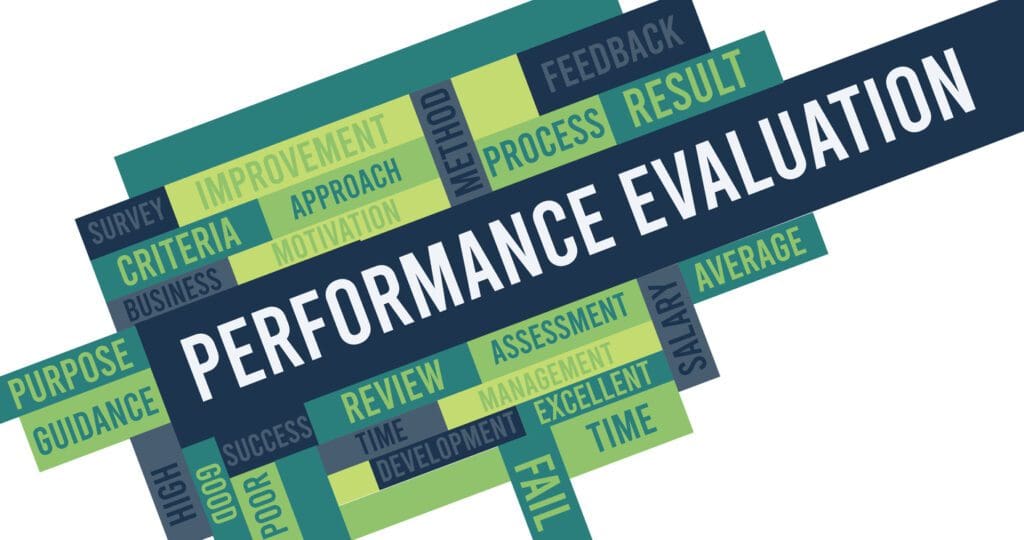Table of Contents
Performance appraisals to improve your business performance – A quick insight!
Is your current job, its roles and responsibilities aligned with your future goal?
What are other ways we can see you contributing more towards the company?
Tell us about the most challenging aspect of your work this past year.
Know why and how to answer these questions effectively and play them to your advantage!!
Get to know much more in this blog. Here, we define performance evaluation, offer some basic performance appraisal objectives, and review the perks of workplace performance appraisals.
Introduction
An employer receives periodic performance assessments from their management team as part of their performance appraisal process.
During the performance assessment process, the employee’s manager discusses their successes, general performance and contribution to the organisation. A manager also assesses whether the employee has achieved their objectives or not. The employee may provide feedback on their short-term and long-term goals during the appraisal.
8 Objectives of Performance Appraisal


Learning the objectives of a performance appraisal will allow you to understand why carrying out evaluations at work is important for the organisation’s success and the individual as a whole.
Performance assessment often involves the following goals;
Increased Output
The level directly determines a firm’s success in productivity. To be given a favourable performance evaluation, an employee has to be productive at work. But the manager can also use the appraisal process to highlight areas for improvement. The performance assessment is when the management may clarify what they need to do to meet expectations.
Identify inaccuracies
Workplace mistakes are prevalent, but with performance appraisals, managers and employees can identify and diagnose these problems shortly after. They can also work collectively and develop solutions and a few objectives to provide repeated lapses in the future. Employee results could spike up due to feeling more secure at work.
Provide prospects for promotion.
Performance evaluation offers proof regarding employees’ performance, making it easier for management to determine whether employees merit an advertisement based on their performance.
Management may contrast two employees based on their previous evaluations to decide who is better suited for a new, more challenging workplace situation.
Establish objectives for your staff.


A manager and an employee should discuss the employees’ professional goals during performance review sessions. The employees are allowed to select the purposes they would like to work on according to their previous performance or the business demands instead of the management establishing targets that the employee has to attain around a certain period. For instance, managers could ask their staff to take charge of one notable project in the following quarter.
Provide opportunities for employee growth.
Employees obtain feedback from their manager during performance evaluation, which they apply to their everyday job. They can use this to enhance their performance and plan for future growth. Evaluating performance is sometimes implemented to identify the possibility of employee improvement through training, conferences, seminars, and more. To assist somebody who thrives in their current position, the management and employees could come up with fresh responsibilities.
Boost competence
Performance reviews can frequently boost an employee’s confidence. They may give the employees constructive criticism and gratitude for their actions. It advances their prospect that employees’ performance will continue to strengthen when performance reviews include praise for employees’ excellent work.
Track your employees’ growth.
Companies embrace a wide range of methods to assess employee performance. And most of them include a record of the discussions and talks between the management and the employees. To determine an employee’s performance, some supervisors might compile reports that list their accomplishments, productivity rates and other performance-based metrics. Identifying whoever is potentially qualified for a promotion or pay raise can be done with the help o this record. This system also allows managers to identify those employees who steadfastly struggle in a particular field, permitting them to render support.
Provide specifics regarding training.
Managers and human resource experts can examine performance appraisal objectives to look for any spots where the team confronts issues. They can develop plans for meetings and training sessions to identify training requirements. Management could propose training sessions on how to take advantage of the new software. For example, if they find that most of the employees in a department have become fewer because of the latest software.
Advantages of performance reviews
The manners and the employee benefits from performance reviews. In this blog, let’s explore a few advantages of performance evaluation;
Motivation
A possible gift of performance reviews is that they inspire employees to deliver a good job and contribute as much as possible to the organisation. The assessment process allows employees to show their capabilities and be acknowledged for a job well done while helping them comprehend what their management expects.
Loyalty
The appraisal process could make employees feel more invested in the business. The company’s culture on how to conduct these evaluations makes an employee feel essential to the company. Employee loyalty supports a company in reducing employee turnover, cutting expenses on recruiting and training fresh hires while upholding performance standards.
Communication
Communication between employees and management and each employee they evaluate is enhanced as well by performance reviews. Even in organisations where managers and employees work together on projects and have broad communication channels, they may routinely discuss goals, motives, progress and performance during appraisal meetings. A performance appraisal process allows them to have deeper discussions regarding a worker’s position throughout the organisation and potential career paths in the context of performance.
Morale
Employee morale can be boosted by having one-on-one meetings with the managers. During examinations, the manager can motivate the employees to share their opinions and give feedback about the company. Appreciating the employee’s efforts and successes could prove a huge morale booster and assist them in accomplishing current projects.
Clarity
Defining the goals and objectives of the employees is an additional advantage of performance appraisal. Managers may receive clarification by interviewing their employees about work-life experiences.
For instance, an employee could state to their manager during an appraisal meeting that they require additional responsibilities as they feel they need to be sufficiently challenged. Had the meeting to address the employees’ specific needs not occurred, the manager could have missed this.
Companies may attempt to create training opportunities or provide employees with additional responsibility to make them feel content.
Summing it up!
Understanding the objectives of performance reviews gives you an edge over other competitors in the busies world. This happens because you start making more rational selections concerning fostering organisational development.
Your staff enjoy themselves in the meantime, which makes them less inclined to leave for better opportunities.
Isn’t this a win-win situation???



